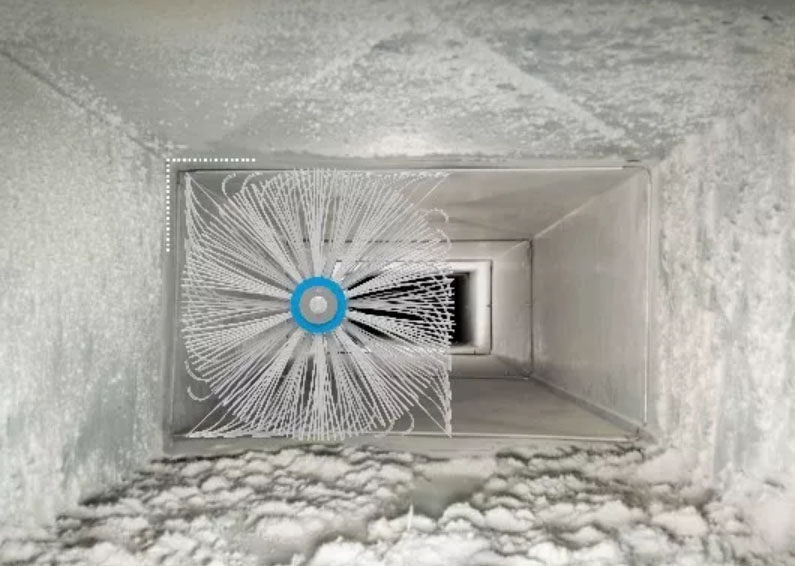An excellent night's sleep is vital for overall health and stability, yet a lot of people have trouble to achieve it. A frequently overlooked factor that can considerably impact sleep quality is the surroundings in which we relax, particularly the heating, ventilation, and air conditioning (HVAC) systems in our residences. Knowing how HVAC systems work and the ways they contribute to a comfortable sleeping environment can help you enhance your sleep quality and daily performance.
In this article, we will explore the multiple aspects of HVAC systems and their direct influence on sleep. From keeping ideal temperature and humidity levels to ensuring clean indoor air quality, the role of HVAC is important not just for ease but for health as well. We will provide information into frequent HVAC problems, maintenance tips, and creative solutions that can help build a sleep sanctuary customized to your needs. By the end, you will acquire the knowledge needed to make informed decisions about your HVAC system, boosting your sleep quality for a better, more refreshing experience each night.
Grasping Heating, Ventilation, and Air Conditioning
HVAC stands for Heat, Air Exchange, and Cooling, which are the three essential elements that function in unison to provide a comfortable environment in domestic and business spaces. Heating systems are responsible for providing heat during colder months, while air conditioning units lower the temperature of the air when temperatures rise. Ventilation ensures that fresh air circulates around the space, eliminating contaminants and maintaining indoor air quality. Learning about how these systems work is important for making informed decisions about upkeeping and upgrading home comfort.
The central function of an HVAC system centers on its various components, including the heater, cooling unit, heat pump, and ductwork. The heater or thermal pump generates heat that is delivered through ventilation systems or heaters, while the cooling unit lowers the temperature of and dehumidifies the air. Proper air movement is ensured through well-placed vents and fans, ensuring that every corner of a home gets the necessary conditioning. Awareness of how these parts work together helps in optimizing their performance and efficiency in energy use.

Frequent HVAC problems can arise from improper maintenance, obsolete technology, or incorrect sizing of the system for the space. These issues can manifest in inconsistent temperatures, rising energy bills, or a faulty system. Routine maintenance, such as filter changes and regular tune-ups, can avoid many of these problems and increase the duration of the system. By grasping HVAC systems and their typical issues, property owners can make better choices in maintenance or replacements, guaranteeing a comfortable living environment throughout the year.
HVAC Care and Effectiveness
Routine Heating, Ventilation, and Air Conditioning maintenance is essential for ensuring the system functions effectively and efficiently. Clear filters, for example, permit better air circulation, allowing the system to maintain a set temperature with less energy consumption. Overlooking maintenance can result to higher energy costs and a drop in performance, as dust and grime accumulate within the system. Planning routine inspections not only helps catch possible issues early but also extends the lifespan of the HVAC equipment.
One more important aspect of HVAC efficiency is the fine-tuning of temperature control settings. It's vital to establish a balance that ensures convenience while also minimizing energy use. For instance, setting the thermostat a few degrees Fahrenheit higher in the summer and a bit cooler in winter can result to significant savings over time. Several modern systems offer smart thermostats that change automatically, ensuring optimal efficiency based on your schedule and preferences.
In conclusion, maintaining the space around the HVAC unit unobstructed and free from obstacles aids in efficient operation. This allows for better airflow and avoids excessive heat or strain on the system. Consistently checking for gaps in the ducts and verifying proper insulation can further enhance energy efficiency. By taking these easy steps, residents can ensure their HVAC systems run efficiently while contributing to reduced energy costs and improved comfort in their living spaces.
HVAC's Impact on Indoor Air Quality
The state of indoor air is crucial for upholding a healthy residential environment, and HVAC systems serve a significant role in this sphere. By efficiently regulating heat and humidity, HVAC systems help to minimize the growth of mold, irritants, and other pollutants that can affect air standards. Additionally, suitable ventilation provided by these systems guarantees that fresh outdoor air circulates inside, reducing the amount of indoor pollutants and offering a more pleasant space.
To enhance interior air quality, choosing the right air screening for your HVAC system is important. High-efficiency particulate air (HEPA) filters can trap a large percentage of floating particles, such as dirt, pollen, and pet dander. Regularly changing site link , as part of HVAC maintenance, helps ensure peak performance and ensures that the air circulating in your home is clear and healthy. Furthermore, some contemporary HVAC systems come fitted with innovative filtration technologies that can further enhance air quality by neutralizing odors and dangerous particles.
Moisture control is another essential function of HVAC systems that immediately affects interior air purity. Adequate humidity levels help stop the growth of pathogens and viruses, which thrive in overly damp environments. Setting up a dehumidifier or ensuring your HVAC system features moisture control features can greatly boost your home's air quality, making the habitat space not only more enjoyable but also safer. Keeping moisture in check contributes to enhanced respiratory health and reduces sensitivity symptoms, leading to better overall health for inhabitants.
